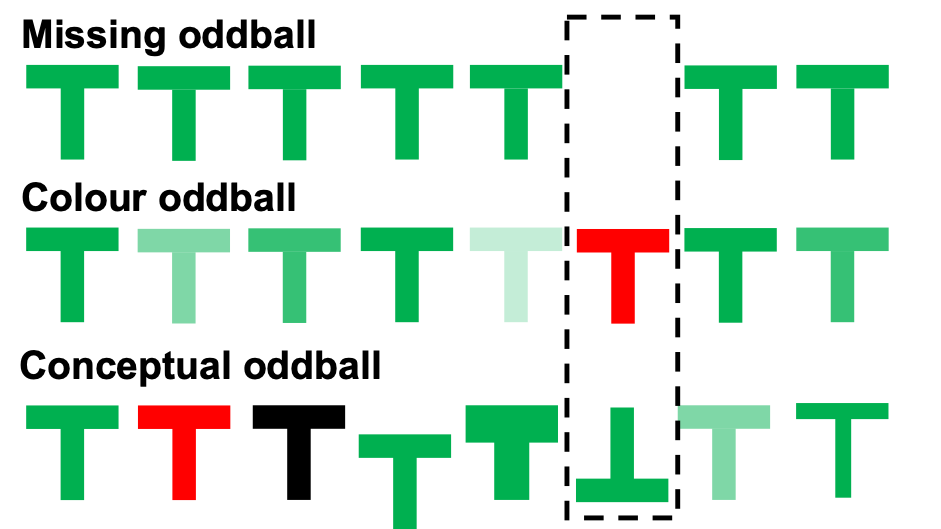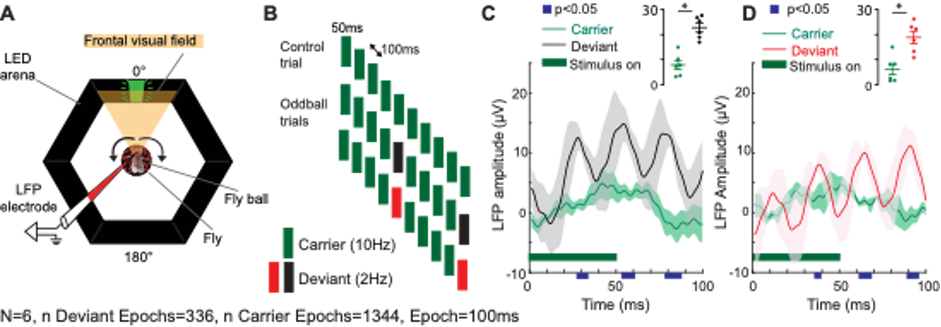Predictive coding and sleep in the fly brain
One potential role of REM sleep in humans or ‘active’ sleep in flies is to optimise the brain’s responses to prediction errors. This ensures adaptive behaviour while awake.
Objective/mission (the vision)
We are testing a compelling hypothesis about the function of REM sleep, which is that it regulates emotions. In flies, emotions are obviously difficult to study. Instead, we design paradigms to test for prediction errors in the fly brain, which we postulate are the evolutionary antecedents of emotional responses. We have designed visual experiments inspired from ‘oddball’ paradigms in human experiments, where deviant stimuli evoke increased activity in the fly brain. By being able to control sleep experimentally, we are testing if sleep manipulations regulate the amplitude of these prediction error signals in the fly brain, and if this has consequences on the animal’s decision making behaviour.
Research approach (the initiative)
This work is combines behavioural experiments in virtual reality environments with brain recordings in flies, using both multichannel silicon probes and single sharp electrodes.




